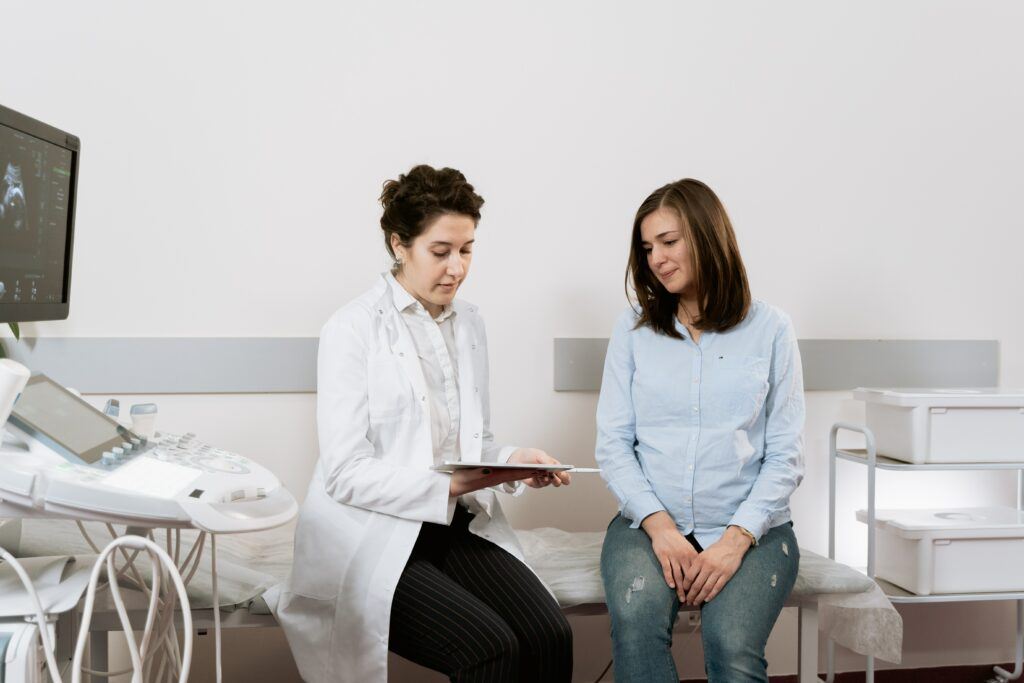Are you contemplating becoming a mother?
Being born with SCI doesn’t hinder your capacity to conceive naturally, carry and birth a child. As a result, having children is a personal choice that you make just like anybody else. You ponder how you’re going to meet the obligations and difficulties of becoming a Pregnancy.
When contemplating whether or not to start a family, here are some essential things to keep in mind. Injured women have had children in varying stages of recovery. If you so desire, you should be able to do so as well. Parenting is a rewarding experience that often outweighs its challenges.
What should I do if I’m trying to conceive or am already carrying?
To ensure a safe here is a checklist of things to do. Get a complete GYN examination. In addition to preconception counseling, you’ll have the ability to obtain prenatal testing and screening for genetic testing. Talk to a doctor who specializes in women’s health after a spinal cord injury.
Your injury can be discussed with this specialist, who is also known as a physiatrist. And what it entails for your labor, delivery, and the postpartum period. Obstetricians (pronounced on-site-Trish-in) and other medical specialists you may require while pregnant can be found through a physiatrist.
Make an appointment with your doctor to review your current medication regimen. Not all medications, both prescription and over-the-counter, should be taken. For pregnant women or those who are trying to conceive. Take all of your medications with you to the obstetrician’s office.
To keep your baby healthy, you may have to change the dosage of your medications. Make an appointment with a urologist. Your bladder will feel the strain as your baby grows.
Before starting a family, you should get your urinary system thoroughly inspected. This information will help you and your obstetrician plan and prepare as your Pregnancy progresses.

The first three months of pregnancy:
Many alterations to your body begin in the first 13 weeks. Involuntary dysreflexia (AD). This will known to cause headaches and nausea. AD may also cause a pounding headache and nausea. At any time, if your damage level is more than T6, you are at risk of developing the autoimmune disease (AD).
If it arises, you and your obstetrician should have a strategy in place ahead of time to deal with AD. Infection of the Urinary Tract (UTI). It is possible to get a urinary tract infection (UTI) at any moment. During this time your physician may prescribe an antibiotic.
If you get a urinary tract infection (UTI) during your pregnancy, you must seek immediate medical attention. Management of the bowels. Your obstetrician is likely to prescribe hormone and iron supplements for you. Your bowel program may be affected in one of two ways by these medications.
Constipation:
Drinking more water, eating meals high in insoluble fiber, or taking a laxative or stool softener can help alleviate constipation.
Diarrhea:
For diarrhea, you should ask your obstetrician to increase your intake of water and fiber-rich food, as well as to lower your dosage. Stool softeners and laxatives might be used until your bowel movements are of the correct consistency.
And if you’re having digestive issues, do your bowel program more frequently. It’s possible that a blockage of feces is to blame for a bout of diarrhea. A stiff, stone-like stool or poor results from your last bowel movement could indicate this.
I am drinking plenty of water and eating a balanced diet. Pregnancy in the second trimester There is a lot of weight gain in weeks 14 through 26. due to the rapid growth of your baby.

Typical day-to-day tasks:
When you gain weight while pregnant, it becomes more challenging to accomplish several things you could do before becoming pregnant. I am drinking plenty of water and eating a balanced diet. You may find yourself exhausted more rapidly than usual. It’s possible to develop new ways of doing everyday tasks by consulting with a physical or occupational therapist.
The following are some ideas.
Consider using a sliding board or asking for assistance when transferring. Power wheelchairs are available for rent or purchase.
Taking care of your bladder:
Your bladder feels the strain of a developing baby. Due to a lack of pee storage capacity, your bladder is likely to spasm. Intermittent catheterization may necessitate more frequent catheterization or the insertion of a Foley catheter during pregnancy.

Taking care of your skin:
A pressure ulcer is a possibility at any time, although it is more likely during this time. Your posture and center of gravity can shift due to weight increase, making it more difficult to move and transfer your body without scratching your skin.
When sitting or lying down, your boney areas can be put under extra stress because of weight growth. It’s possible to develop new ways of doing everyday tasks by consulting with a physical or occupational therapist. Look at your face more frequently.
You may also have your obstetrician conduct skin checks as part of your prenatal examinations. Do pressure relief much more frequently. See the “Skin Care and Pressure Sores in Spinal Cord Injury” fact sheet for additional information for Pregnancy.
Muscle twitching:
There is a possibility that your muscular spasms will change. If you are prone to muscle spasms, they may get worse, or you may acquire them if you are not inclined to them. See the “Spasticity and Spinal Cord Injury” fact sheet for further information.

Third trimester:
During weeks 27 to 40, both you and your baby will be getting bigger and bigger.
Breathing:
When you’re Pregnant, your fetus pushes against your diaphragm. This can make it difficult for you to inhale and exhale, and it may also cause you to cough. It’s possible to improve your breathing by consulting with a respiratory therapist. These exercises may be recommended by your doctor . Your obstetrician may do a lung function test if your injury is located high on the spine.
Flow of blood:
Blood flow to the legs and feet can be slowed by the growing baby’s pressure, resulting in swelling. If you have had blood clots in the past, talk to your obstetrician about taking medication to prevent them from forming.
Find out whether range-of-motion exercises and posture changes can help enhance blood flow. As much as possible, raise your feet off the ground. Compression support hoses are recommended. Attempt to get some extra shut-eye.

What happens in the womb and at the time of birth?
For women with SCI, labor and delivery are just as important as for any other woman. It would help if you took childbirth classes. Get your baby’s nursery in order before they arrive. Consider your options before you go into labor. Learn how to put a car seat in your child’s car and where to get one.
Go to the hospital with your labor bag in hand. Assemble a team of postpartum caregivers. Preparation is vital when it comes to infant supplies. Your fridge and pantry need to be stocked up with food. In addition to the typical indicators of labor, women with spinal cord injuries may also experience several of these symptoms. Mucus leaks or water bursts can occur on that time.
Anxiety and fear are common emotions. Diarrhea. Back or neck pain is unusual. Contractions are muscular and regular. Your stomach is tense. Relieved breathing Pressure in the groin region. Preparation for labor and delivery should begin as early as possible with your obstetrician.
AD, UTI, bowel management, bladder control, skincare, muscle spasms, and blood flow still need to be addressed. If you have any questions or concerns about the accessibility of the labor, delivery, and patient rooms, take a tour. Don’t be scared to inquire if you have any questions or concerns.

Leave a Reply